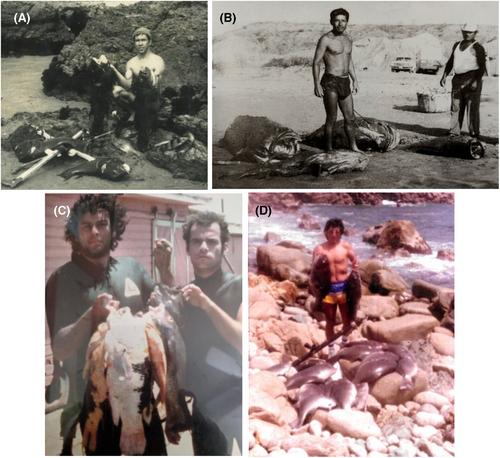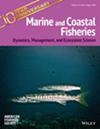Fish populations targeted by recreational and artisanal fisheries remain largely unassessed in low- and middle-income countries. This generally results in a lack of regulatory action from government agencies, thus aggravating the risk of overfishing. In this context, sources of historical information, such as local ecological knowledge (LEK), are key to providing insight on the status of fish populations and informing management. Systematized elicitation processes have increasingly shown an ability to produce quantitative indicators while reducing biases and caveats inherent to expert knowledge. In this study, we assessed changes in composition of the catch, species abundance, and geographical distribution of the catch for 10 data-poor coastal groundfish species of Peru using LEK.
We designed and conducted a structured elicitation process to gather LEK on these species from 40 recreational and commercial spearfishers in Peru. We then used the obtained data to develop a set of indices and analyzed them statistically to identify trends and the magnitude of changes over time, if any, between the years 1960 and 2019.
Our results show a significant decline in the relative participation (a species' catch proportion relative to the total catch) and abundance of seven assessed species in the catch as well as a major reduction in their geographical distribution. For some species, decreases in relative participation within the catch and decreases in average daily catch, a measure that may indicate changes in abundance, were statistically significant across the time span of the study. Average daily catch was between 1% and 15% of their historical high values. Some species have experienced a reduction of 60–100% in the geographical distribution of their catch.
Results suggests a scenario of overfishing and sequential depletion of the Galapagos Sheephead Wrasse Semicossyphus darwini, Pacific Goliath Grouper Epinephelus quinquefasciatus, Harlequin Wrasse Bodianus eclancheri, Grape-eye Seabass Hemilutjanus macrophthalmos, Chino Medialuna ancietae, Pacific Beakfish Oplegnathus insignis, and Broomtail Grouper Mycteroperca xenarcha. We highlight how the application of expert elicitation methods can help to build LEK-based fishery indicators that are useful for assessing data-poor fisheries and providing critical information to prompt management discussions.



